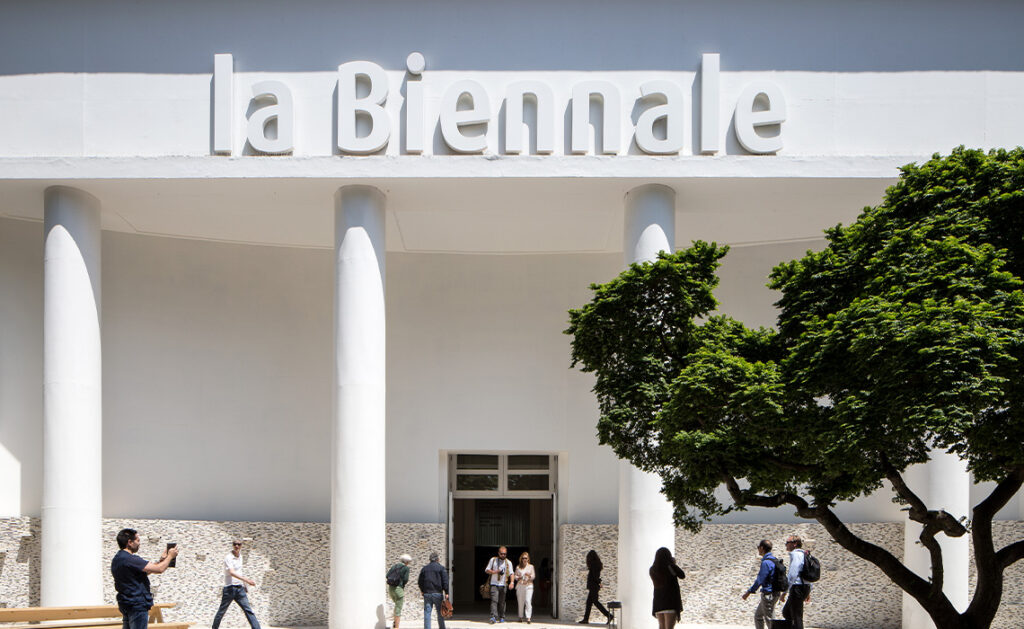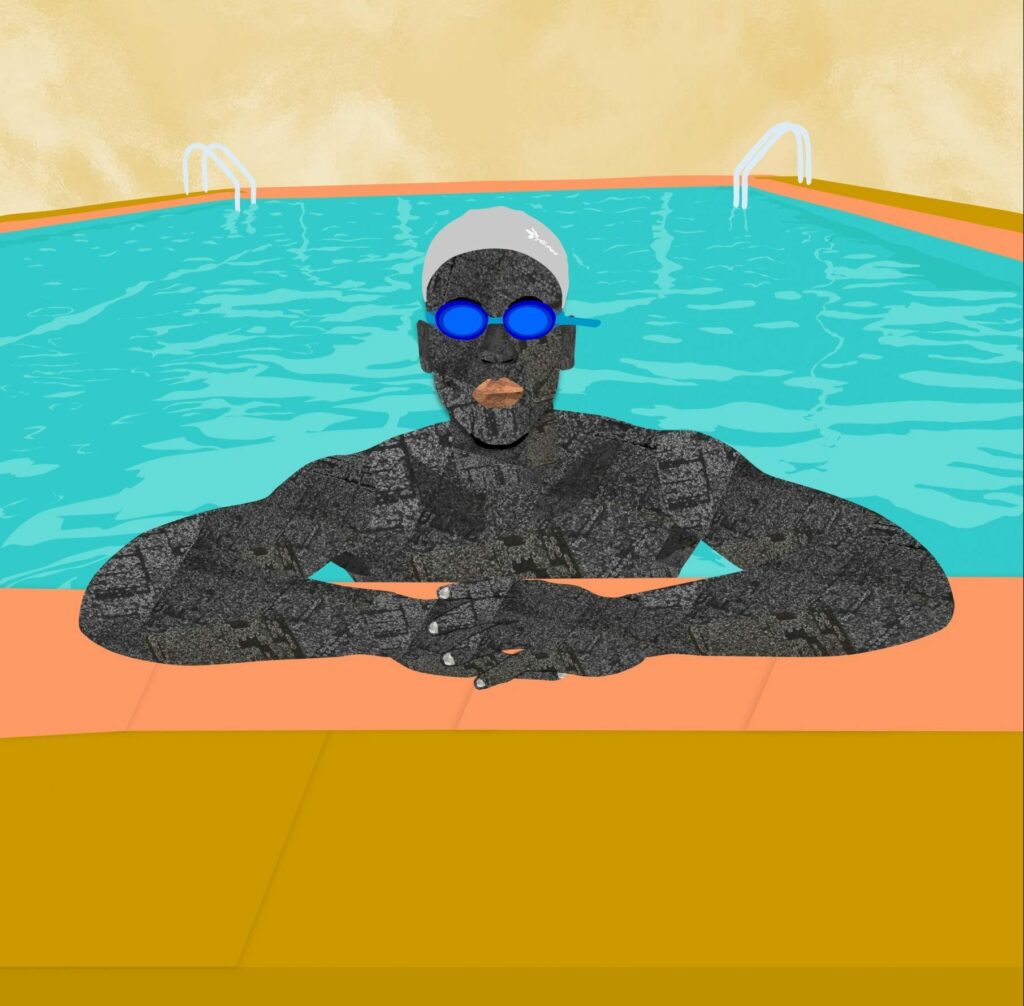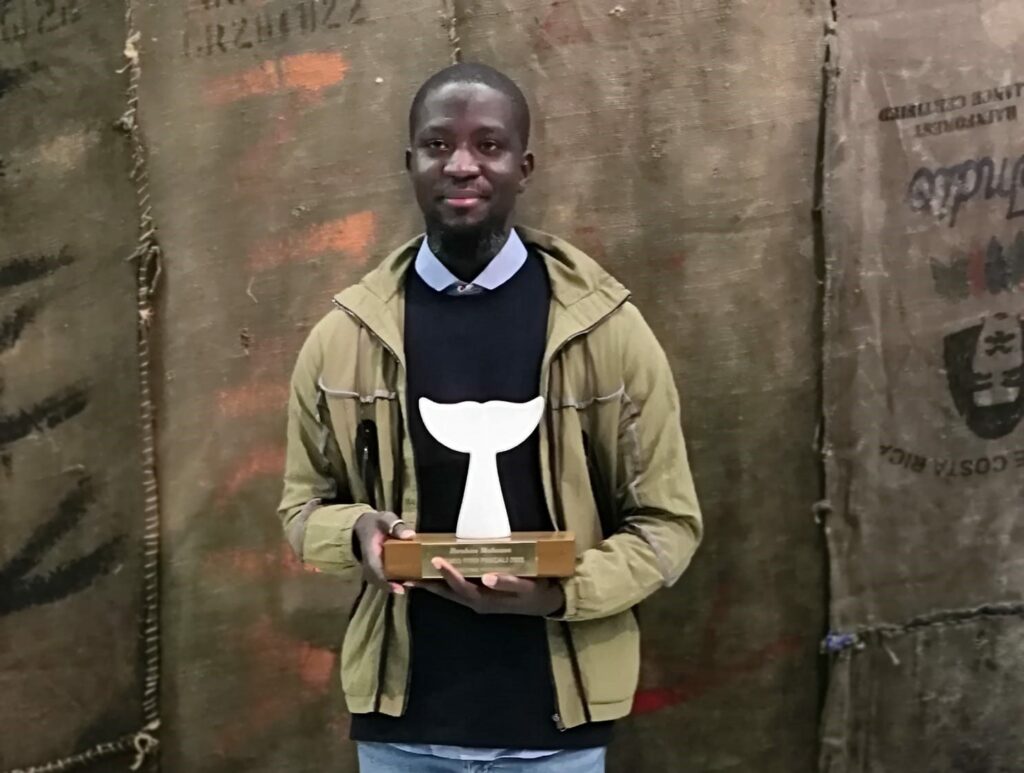The 60th Venice Biennale, slated to run from April 20 to November 24, 2024, is poised to be a dynamic celebration of art, culture, and diversity. Under the theme “Stranieri Ovunque – Foreigners Everywhere,” curator Adriano Pedrosa has curated a lineup of pavilions announcing participants with roots in Africa, promising a rich tapestry of narratives and perspectives. From Canada to Tanzania, each pavilion offers a unique exploration of African heritage within the global art landscape, highlighting the diverse voices and experiences shaping contemporary artistic discourse.
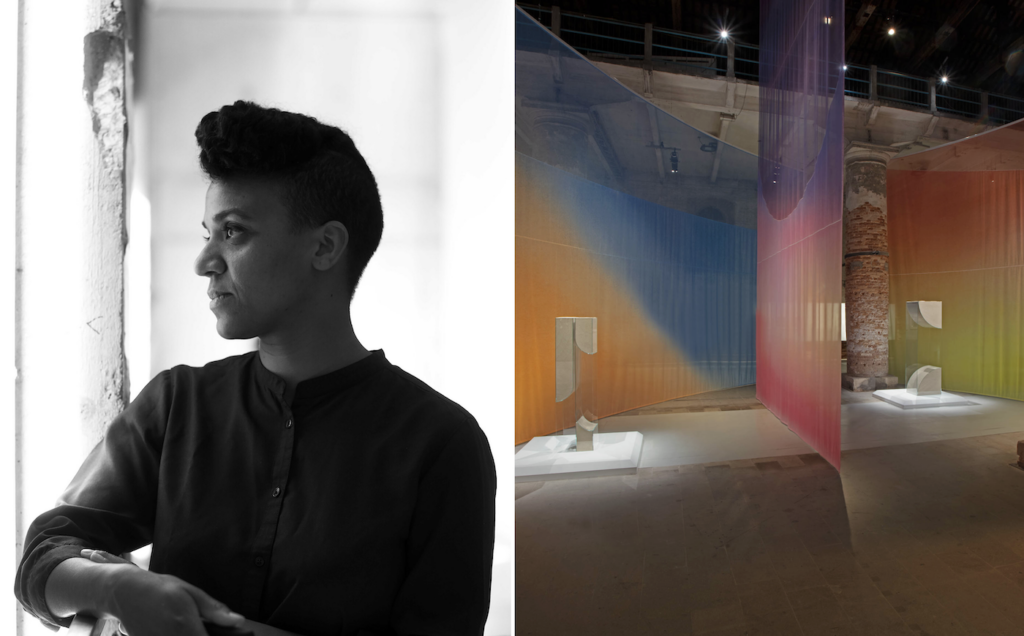
Canada: Kapwani Kiwanga
Representing Canada, Kapwani Kiwanga brings her Tanzanian-Canadian heritage to the forefront of the Biennale. Known for her multidisciplinary approach to exploring marginalized histories, Kiwanga’s work offers a thought-provoking examination of identity, memory, and cultural heritage. Curated by Gaëtane Verna, her exhibition promises to captivate audiences with its blend of sculpture, installation, video, and performance.

Benin: Exploring Decolonization
In a landmark debut, Benin’s pavilion enters the Biennale scene, shedding light on the global discourse surrounding decolonization. Co-curated by Azu Nwagbogu, Madame Yassine Lassisi, and Franck Houndegla, the exhibition showcases the works of four Beninese artists, each contributing to the dialogue on reclaiming cultural heritage and fostering identity in a post-colonial world.
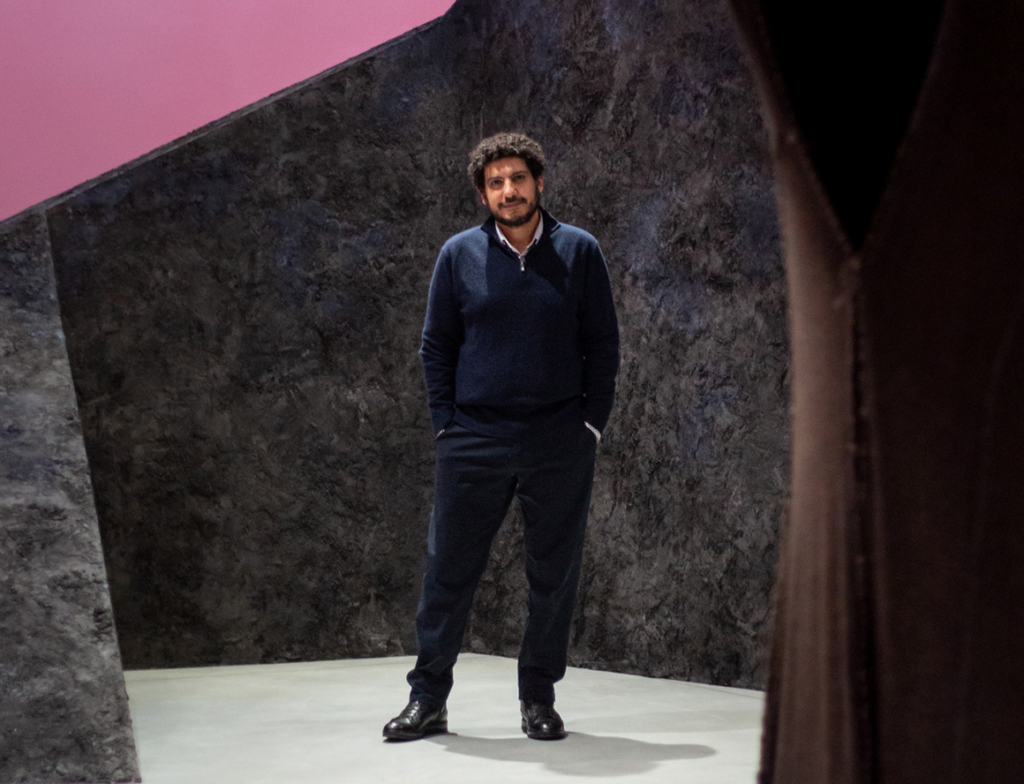
Egypt: Wael Shawky’s Historical Narratives
Egypt’s pavilion offers a captivating exploration of national imagination and historical narratives through the work of Wael Shawky. Spanning painting, film, and performance, Shawky’s art invites viewers to delve into the complexities of cultural memory and the interplay between fact and fiction in shaping historical narratives.
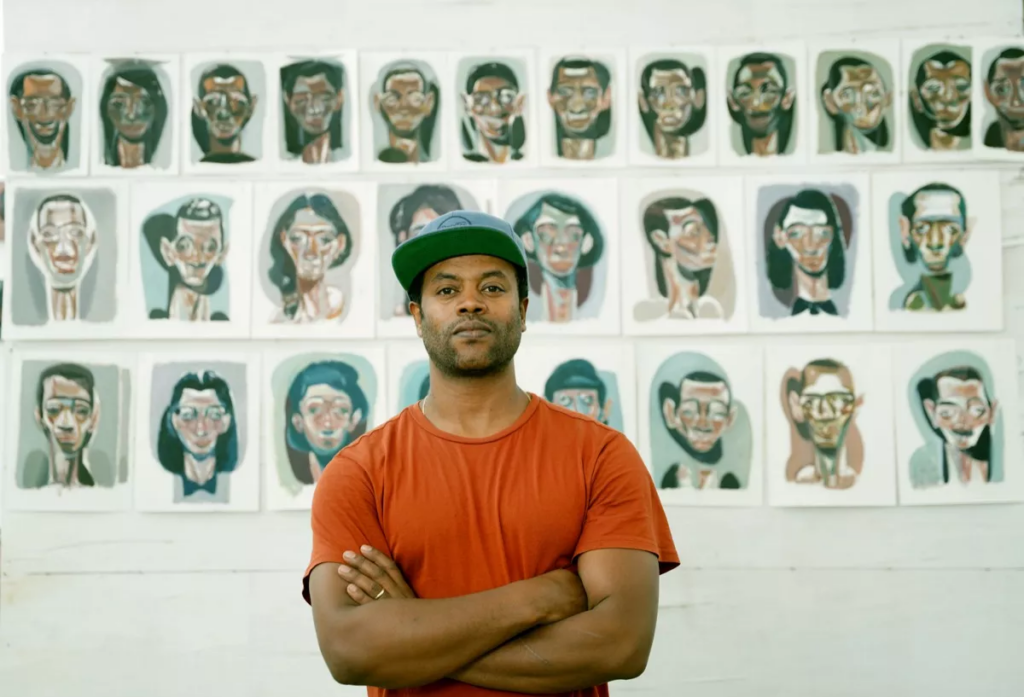
Ethiopia: Tesfaye Urgessa’s Distinctive Voice
In its inaugural exhibition, Ethiopia’s pavilion introduces the artistry of Tesfaye Urgessa, whose work reflects a unique fusion of Ethiopian iconography and Western artistic traditions. Curated by Lemn Sissay OBE FRSL, Urgessa’s exhibition offers a profound exploration of race, identity politics, and domestic narratives within the Ethiopian context.

France: Julien Creuzet’s Diasporic Experience
Julien Creuzet, representing France, brings his personal diasporic experience to the forefront of the Biennale. Through visual art and poetry, Creuzet navigates themes of migration, creolization, and cultural exchange, offering a poignant reflection on the complexities of identity and belonging in a globalized world.

Great Britain: John Akomfrah’s Representation
John Akomfrah, a British-Ghanaian artist, offers a critical reflection on contemporary British identity and history at the Great Britain Pavilion. Curated by Tarini Malik, Akomfrah’s exhibition delves into themes of colonialism, diaspora, and cultural heritage, inviting viewers to engage with the complexities of belonging and identity.
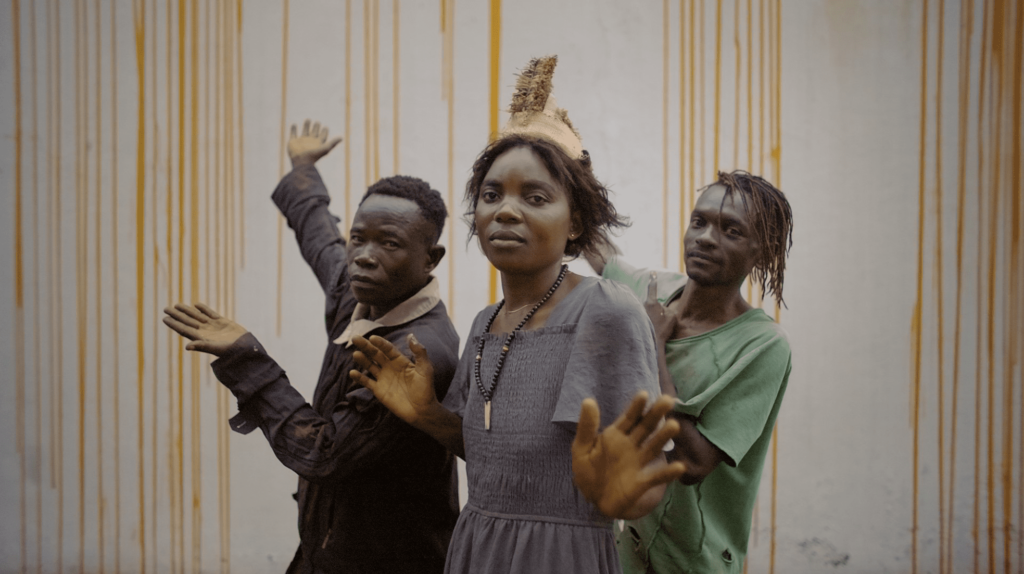
Netherlands: Cercle d’Art des Travailleurs de Plantation Congolaise
The Dutch Pavilion collaborates with the Cercle d’Art des Travailleurs de Plantation Congolaise (CATPC) to spotlight the unique artistic expression of Congolese plantation workers. Through their work, these artists challenge conventional notions of art and labor, offering a powerful commentary on labor, exploitation, and resilience in the context of the plantation.
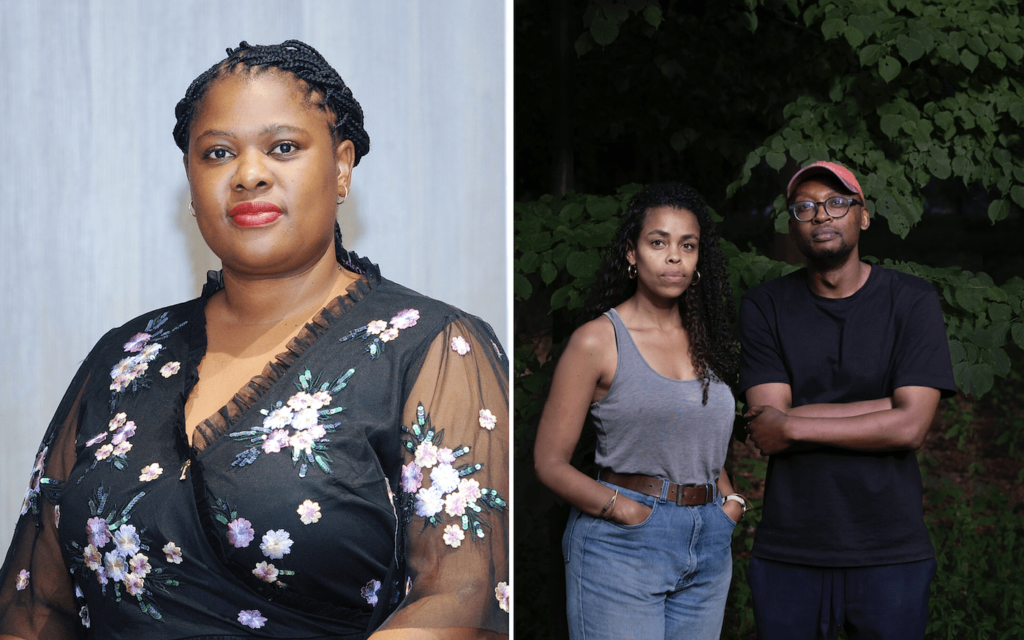
South Africa: Institute of Creative Repair
Curated by Portia Malatjie, South Africa’s pavilion explores themes of repair and restoration through a captivating sound installation by the MADEYOULOOK collective. Titled “Quiet Ground,” the exhibition serves as a poignant reflection on South Africa’s journey towards healing and renewal.
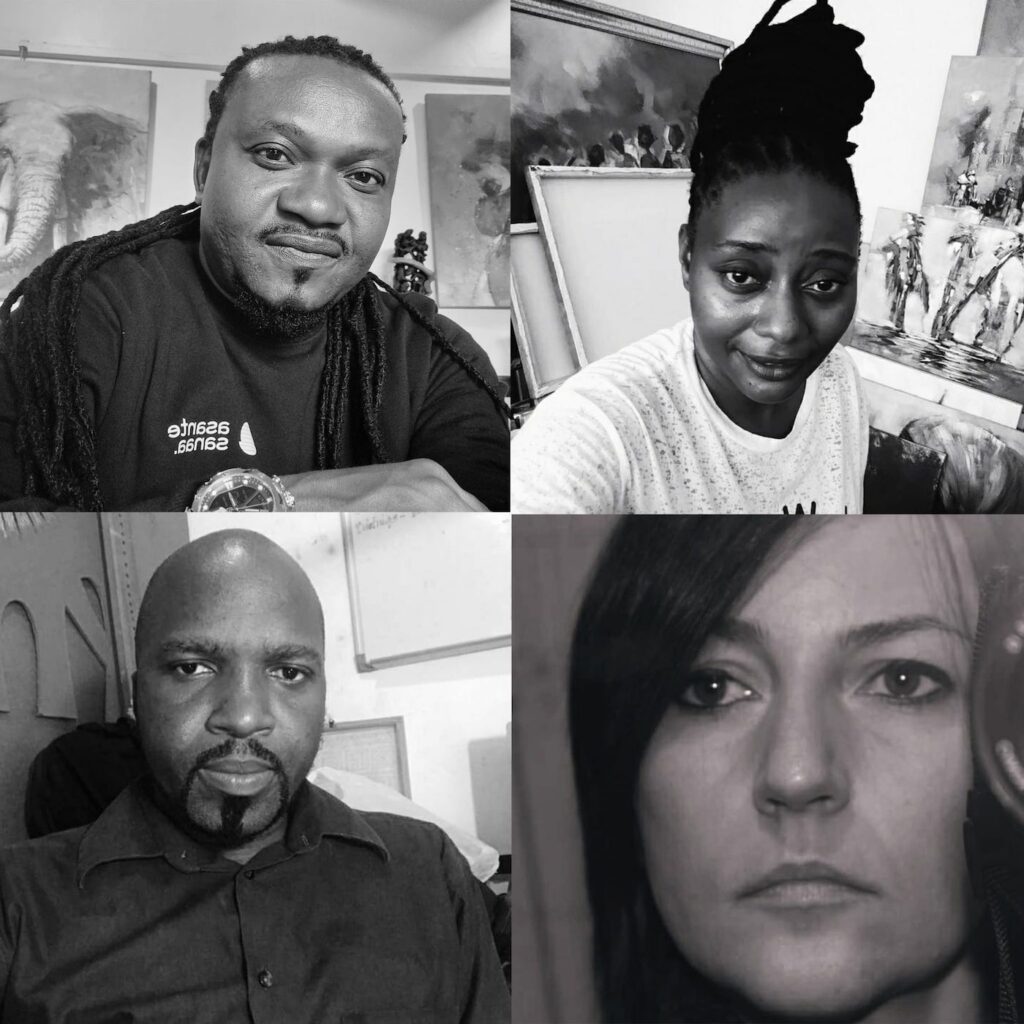
Tanzania: Exploring Humanity’s Connection with Nature
Making its debut, Tanzania’s pavilion curated by Enrico Bittoto invites viewers to explore humanity’s intricate relationship with nature through the works of Happy Robert, Naby, Haji Chilonga, and Lute Mwakisopile. The exhibition sparks contemplation on our role as stewards of the environment and the interconnectedness of all living beings.
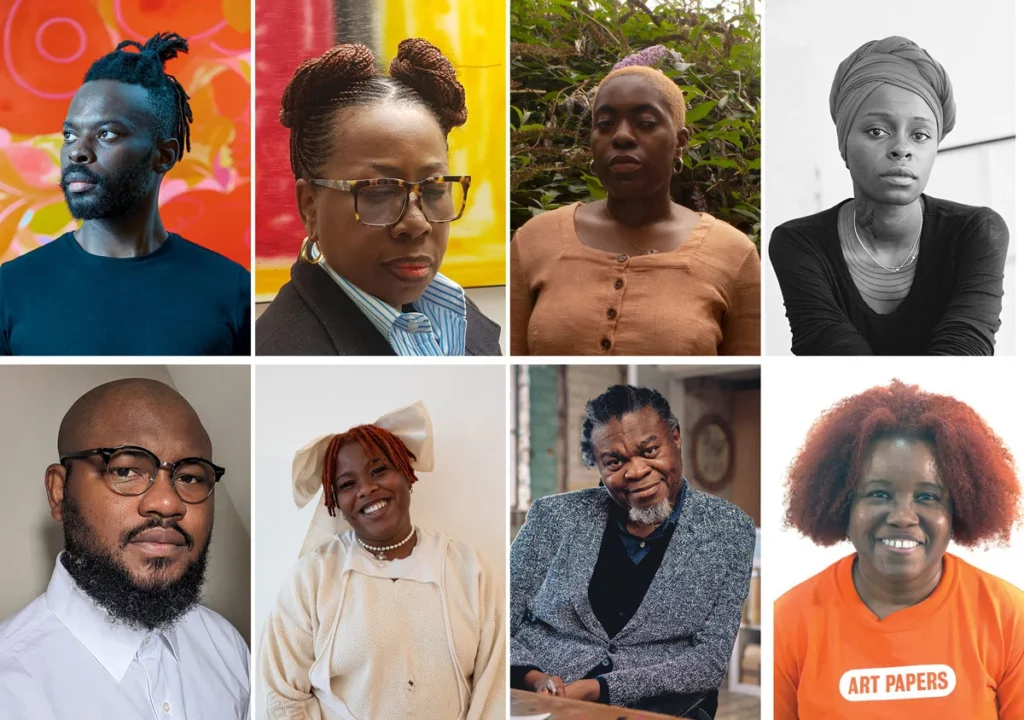
Nigeria: A Kaleidoscope of Voices
The Nigerian Pavilion, curated by Aindrea Emelife, serves as a kaleidoscope of Nigerian culture and identity, featuring the works of eight diverse artists. From Tunji Adeniyi-Jones to Fatimah Tuggar, each artist brings forth a unique perspective, enriching the narrative tapestry of Nigeria’s artistic landscape.
Conclusion:
As the 60th Venice Biennale approaches, the pavilions announcing participants with African heritage promise to offer a captivating journey through the complexities of identity, memory, and cultural exchange. From established luminaries to emerging talents, these exhibitions celebrate the diversity and resilience of African voices within the global art landscape. As visitors embark on this immersive artistic journey, they are invited to engage with the myriad of narratives and perspectives that define contemporary art in the 21st century.
